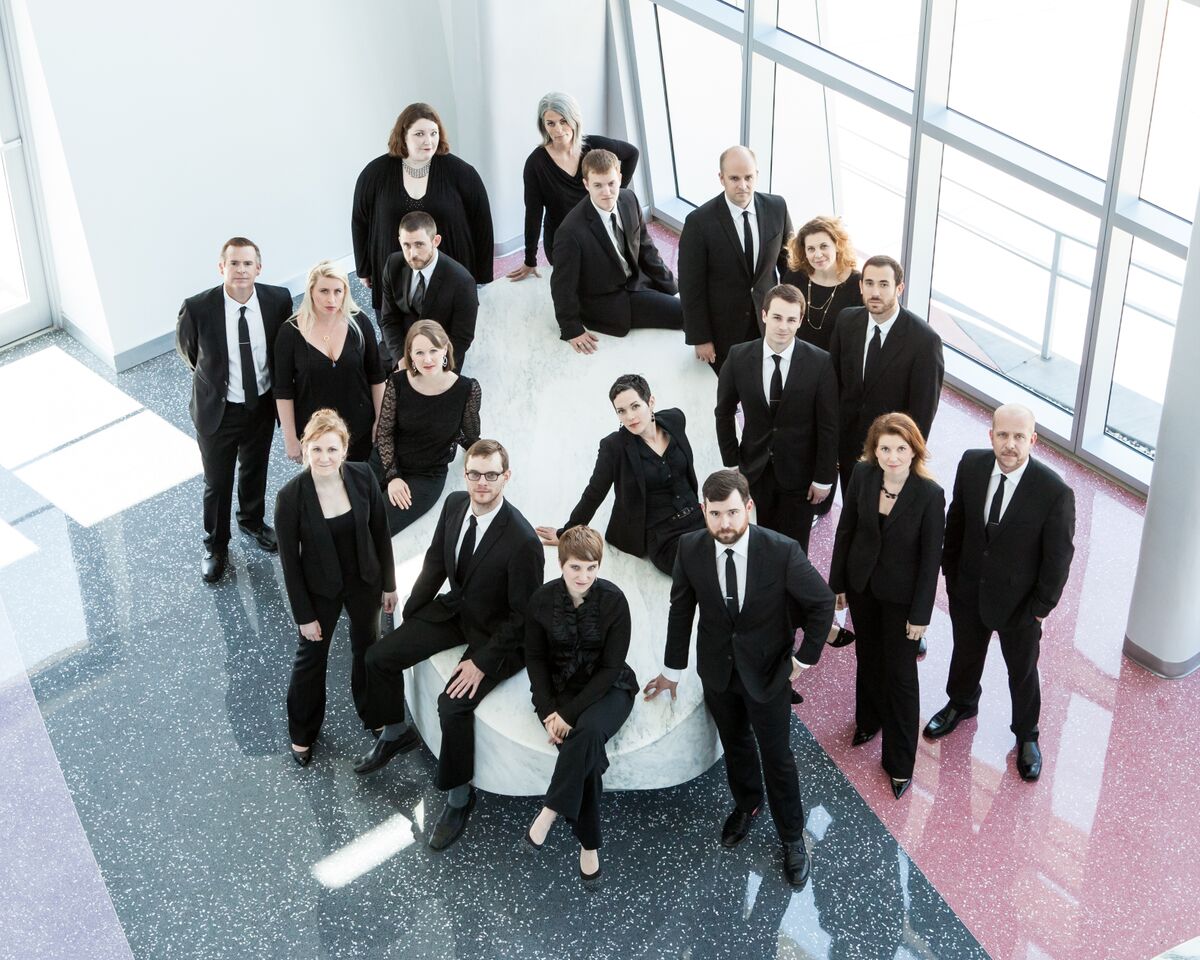
Seraphic Fire opens 2015-16 season with moving tribute to late benefactor
This post has been updated.
An unforeseen context surrounded the first concert of Seraphic Fire’s 14th season–one that ultimately enhanced its artistic value. Remarkable and deeply emotional, the concert was “fired up” by the memory of its benefactor, Ruth Sackner, who died three days before the event. From the beginning, Ruth and husband Marvin, creators of the Sackner Archive of Concrete and Visual Poetry, were unconditional fans and supporters of the choral ensemble, and the program–planned months ago–turned out to be, from beginning to end, a tribute as extraordinary as it was unexpected.
Comprising 19th century German and Austrian compositions and a new commissioned piece by young American composer Jake Runestad, the concert’s theme was, in sum, love and death. It was suffused with Johannes Brahms’ severity, Ludwig van Beethoven’s humanism and Franz Schubert’s innocence, plus Josef Rheinberger’s mysticism, George Frideric Handel’s nostalgia and Runestad’s fresh approach. The result was a felicitous one-and-a-half hour amalgam of the voices of Patrick Dupré Quigley’s talented ensemble and the strings of The Sebastians.

Knight Arts grantee Seraphic Fire.
The first piece, Beethoven’s “Elegiac Song,” could not have been more fitting for the occasion (“Gently, as you lived, have you died, too holy for sorrow!”). It was followed by Brahms’ Psalm 13, impeccably sung by the female section, later joined by the men for “O Heiland, reiss die Himmel auf,” one of the two beautiful motets in the composer’s Opus 74, for a capella choir. Performed at the All Souls’ Episcopal Church on Miami Beach, the voices seemed to multiply, movingly conveying both the serenity of the Beethoven piece and the restraint of the Brahms’ composition.
Such severe German romanticism was an appropriate prelude to the premiere of “The Hope of Loving,” a fresh, accessible piece accompanying six passages from Daniel Ladinsky’s anthology, “Love Poems from God,” renderings of “sacred voices from the East and West” that fit in well with the musical path trod by Seraphic Fire. Runestad, the composer, sat in the audience. From the sixth-century Sufi poet Rabia to St. Francis of Assisi and Meister Eckhart to St. John of the Cross and Hafiz of Shiraz, the passages were brought to life by Runestad’s honest music, which flowed free of clichés and preconceived ideas. James Bass’ and Sarah Moyer’s splendid voices captured, in their simplicity, the composition’s essentially American roots, while The Sebastians expertly executed the instrumental interlude, “The Heart’s Veil.” It is worth noting that “The Hope of Loving” was not constricted by the text, nor did it resort to conventional mystical pap. Rather, it achieved an enviable balance in which music starred and served to enhance the poetry.
In their treatment of Handel’s Trio Sonata in G Minor, The Sebastians displayed their qualities as a period ensemble, boasting rich and elegant sound, devoid of unnecessary mannerisms, and later launched into the Mass in G Major by the 18-year-old Schubert. When he wrote it, the Viennese composer had barely a decade more to live. One of the best known of his five masses, it brought out the best of Seraphic Fire’s strengths as a chamber music ensemble. The rendering was as luminous as it was devotional, as befits a composition whose most valuable feature is purity of expression. Tenor Steven Soph contributed precisely the right kind of luminous sound, as did bass Charles Evans, but it was Sara Guttenberg who rounded out the trio of soloists with a memorable performance, her free and powerful voice crossing all barriers, becoming a veritable messenger of light.
Quigley’s decision to add the Three Spiritual Songs of Liechtensteinian composer Joseph Rheinberger, a teacher of Engelbert Humperdinck and Wilhelm Furtwängler at the Munich Conservatory, was risky but worth the effort. The pieces were well integrated into the mass and contributed to exalting the devotional sentiment that prevailed throughout the performance–an evening of the highest level featuring works that are, unfortunately, seldom performed locally. It was a spontaneous tribute filled with the consolation that music affords, an achievement that made even the well-deserved final applause seem superfluous.
Seraphic Fire’s next concerts featuring George Frideric Handel’s “Coronation Anthems” will take place Nov. 6-8.
Recent Content
-
Artsarticle ·
-
Artsarticle ·
-
Artsarticle ·

